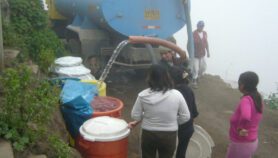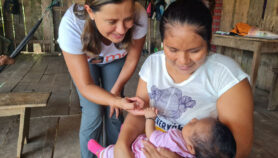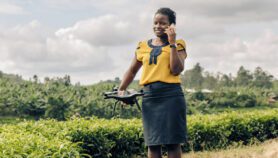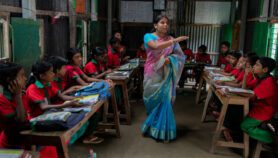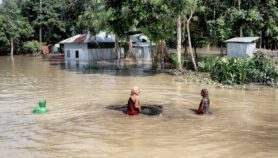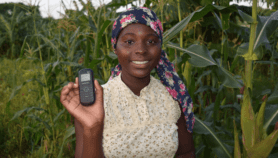By: Laura García
Send to a friend
The details you provide on this page will not be used to send unsolicited email, and will not be sold to a 3rd party. See privacy policy.
A new phase of the international initiative ‘Online Access to Research in the Environment’ (OARE) was launched last week (6 November).
OARE’s goal is to reduce disparities in access to scientific research between developed and developing nations.
Five hundred institutions from 72 countries subscribed a year ago under the first phase of the project.
With this second phase, interested institutions from another 36 developing countries will have access to an environmental and related sciences research database.
The United Nations Environment Program (UNEP) and Yale University sponsor the public-private consortium initiative. Around 350 publishing and society partners also support it.
"OARE will contribute to the development of professional and academic communities, and encourage scientific creativity and productivity," Paul Bendiks Walberg, one of OARE’s coordinators at Yale, told SciDev.Net.
He said the project will "build the capacity of scientists and natural resource professionals to manage fragile ecosystems, protect human health and manage natural renewable resources more sustainably".
OARE’s members come under two categories. The first includes institutions in 72 countries with a gross national income (GNI) per capita under US$1250, which have free access.
The second group includes institutions in 36 countries with a GNI per capita US$1250–3500. For them, the first three months are free of charge, after which they are asked to pay an annual enrolment fee of US$1000.
Evans Kituyi, a researcher at the Division of Environmental Chemistry of the University of Nairobi, Kenya, told SciDev.Net that OARE is an important tool for his team.
He is currently using the OARE database to download papers for a review paper he is writing for a conference.
"I am also sharing publications with fellow African researchers from six other African countries in my urban air pollution network. So in that way we have access to relevant and current research literature."
OARE is one of many projects being developed to increase access to scientific research by developing countries.
The WHO-run HINARI programme enables access to biomedical and health literature, and AGORA, set up by the UN Food and Agriculture Organization, provides information in the fields of food, agriculture, environmental science and related social sciences.



